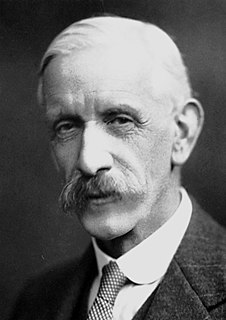A Quote by Frederick Gowland Hopkins
As a progressive discipline [biochemistry] belongs to the present century. From the experimental physiologists of the last century it obtained a charter, and, from a few pioneers of its own, a promise of success; but for the furtherance of its essential aim that century left it but a small inheritance of facts and methods. By its essential or ultimate aim I myself mean an adequate and acceptable description of molecular dynamics in living cells and tissues.
Related Quotes
Given that the nineteenth century was the century of Socialism, of Liberalism, and of Democracy, it does not necessarily follow that the twentieth century must also be a century of Socialism, Liberalism and Democracy: political doctrines pass, but humanity remains, and it may rather be expected that this will be a century of authority ... a century of Fascism. For if the nineteenth century was a century of individualism it may be expected that this will be the century of collectivism and hence the century of the State.
For the last century of neuroscience, lots of people have tried to control neurons using all sorts of different technologies - pharmacology (drugs), electrical pulses, and so on. But none of these technologies are precise. With optogenetics, we can aim light at a single cell, or a set of cells, and turn just that set of cells on or off.
Fail your way forward. Recognize that Ready, fire, aim is superior to ready, aim, aim, aim. Straightforward trial and error produces better results than endless vacillating. If you're afraid to make decisions and act on them in the face of ambiguity and uncertainty, get a job. Failure's lessons are essential to success.
































